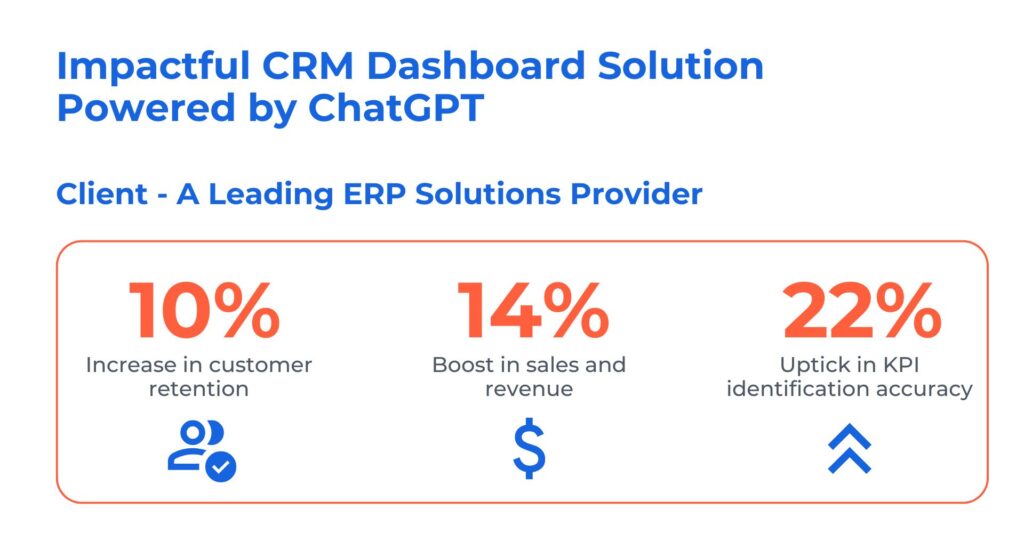Microsoft reported spending $14 billion on AI infrastructure in Q3 2024 alone. That number shows how seriously companies are taking AI adoption. They are constantly looking out for technologies that help automate customer support, generate high-quality content, and streamline internal processes for gaining a competitive edge. According to recent data, the global AI market is projected to grow from $184 billion in 2024 to $826.7 billion by 2030, reflecting the increasing reliance on AI technologies across various sectors. With AI models like ChatGPT, Gemini, and Claude vying for dominance, how do you decide which one fits your needs best?
ChatGPT dominated headlines since late 2022. Then Google launched Gemini. Anthropic released Claude. Now you’re stuck choosing between three powerful options, each claiming to be the best.
The differences matter more than you think. One model might excel at writing code while another handles complex research better. Some work better for customer service. Others are built for data analysis. Pick the wrong one and you’ll waste time, money, and patience.
This guide breaks down ChatGPT vs Gemini vs Claude with real performance data. You’ll see what each model does well, where it falls short, and which one matches your actual business requirements.
Boost Efficiency and Growth with AI that Works for Your Business!
Partner with Kanerika for Expert AI implementation Services
ChatGPT vs Gemini vs and Claude: An Overview of the Top AI Models
ChatGPT
Developed by: OpenAI
Versions: GPT 5.1, GPT 4.5, GPT 4o, GPT 4o mini, o1, o3, o3-mini, o4-mini
Key Milestone: First mainstream AI chatbot
Market Position: ChatGPT leads the AI chatbot market with roughly 80% market share. As of 2025, ChatGPT has 800 million weekly active users.
Core Technology: GPT architecture
Key Features
1. Text and Image Generation
ChatGPT generates both text and images. GPT-4o’s image generation launched in March 2025, replacing DALL·E 3 in ChatGPT.
Use Cases: Content creation, marketing materials, educational content.
2. File Uploads and Custom GPTs
Users can upload files and create custom GPTs for specific tasks.
Use Cases: Boosts productivity for businesses with custom solutions.
3. Versatile Applications
ChatGPT works well for customer service, technical writing, creative content, and more.
Use Cases: Covers customer support, content creation, interactive applications.
4. Internet Access
ChatGPT launched built-in web search in late October 2024, initially for Plus users, then expanded to all users by early 2025.
Use Cases: Useful for applications needing current data like news or real-time problem solving.
5. Advanced Voice Mode
GPT-4o supports voice-to-voice communication with Advanced Voice Mode.
Use Cases: Natural conversation, real-time audio interactions.
6. Reasoning Models
OpenAI released o1 in December 2024, designed to solve complex problems by spending more time analyzing answers and exploring different strategies.
Use Cases: Competitive programming, mathematics, scientific reasoning.
Pricing
Free Tier: Access to GPT-4o with usage limits
1. ChatGPT Go: Available in select countries like India at ₹399 per month (approximately $4-5 USD), with higher usage limits than the free tier
2. ChatGPT Plus: $20 per month, includes access to GPT-4o, o3-mini, o1-preview, and o1-mini with higher usage limits
3. ChatGPT Pro: $200 per month, offers unlimited access to reasoning models, GPT-4o, and Advanced Voice mode, plus access to o1 pro mode
4. ChatGPT Team: $30 per user per month or $25 per user per month billed annually for up to 149 users
5. ChatGPT Enterprise: Custom pricing negotiated with sales
Google Gemini
Developed by: Google DeepMind
Versions: Gemini 3 Pro, Gemini 3 Deep Think, Gemini 2.5 Pro, Gemini 2.5 Flash, Gemini 2.5 Flash-Lite, Gemini 2.0 Flash, Gemini 2.0 Flash-Lite
Key Milestone: First AI chatbot integrated across Google’s full ecosystem
Market Position: Google Gemini has over 650 million monthly active users as of November 2025. Gemini holds approximately 13.4% of the U.S. AI chatbot market share.
Core Technology: Multimodal AI architecture
Key Features
1. Text and Image Generation
Gemini features native image generation through Gemini 2.5 Flash Image (also called Nano Banana), an image generation and editing model developed by Google DeepMind.
Use Cases: Content creation, marketing materials, visual design.
2. Multimodal Understanding
Gemini processes text, code, images, audio, and video within a single architecture.
Use Cases: Document analysis, media processing, comprehensive research tasks.
3. Long Context Windows
Gemini models support up to 1 million token context windows, with Gemini 2.5 Pro offering up to 2 million tokens.
Use Cases: Processing large documents, analyzing entire codebases, long-form content.
4. Deep Think Mode
Gemini 3 Deep Think mode provides advanced reasoning capabilities, designed for complex problems in code, math, and STEM.
Use Cases: Advanced coding, scientific research, strategic reasoning.
5. Google Workspace Integration
Gemini integrates directly into Gmail, Docs, Sheets, Slides, and Google Meet.
Use Cases: Email drafting, document creation, data analysis, meeting summaries.
6. Web Search Integration
Built-in web search capabilities powered by Google Search.
Use Cases: Real-time information retrieval, research, fact-checking.
7. Code Generation
Gemini 2.5 Pro and Flash models power Gemini Code Assist with improved chat, code generation, and transformation capabilities.
Use Cases: Software development, code completion, debugging.
Pricing
Free Tier: Access to Gemini models through Google AI Studio with rate limits (15 requests per minute, 1 million requests per day)
Google One AI Premium: $19.99 per month, includes Gemini Advanced (access to Gemini 2.5 Pro), 2TB Google storage, and Gemini integration in Gmail, Docs, Sheets, and Slides
Gemini Code Assist Standard: $19 per user per month (monthly) or $228 per user per year
Gemini Code Assist Enterprise: $45 per user per month (monthly) or $540 per user per year
API Pricing (Pay-as-you-go): Gemini 3 Pro API costs $2 per million input tokens and $12 per million output tokens for contexts under 200,000 tokens. For contexts over 200,000 tokens, prices increase to $4 and $18 per million tokens respectively
Claude
Developed by: Anthropic
Versions: Claude Opus 4.5, Claude Sonnet 4.5, Claude Opus 4.1, Claude Sonnet 4, Claude Haiku 4.5, Claude Sonnet 3.7
Key Milestone: First AI chatbot with Constitutional AI approach focused on safety and helpfulness
Market Position: Claude has approximately 30 million monthly active users as of Q2 2025. Claude holds around 3.2% to 3.9% of the overall U.S. AI chatbot market share, but commands 29% of the enterprise AI assistant market.
Core Technology: Constitutional AI and reinforcement learning from human feedback
Key Features
1. Extended Context Windows
Claude models support up to 200,000 tokens as standard, with capabilities to handle over 1 million tokens for processing entire codebases or large documents.
Use Cases: Analyzing full books, processing large codebases, reviewing extensive legal documents.
2. Hybrid Reasoning Models
Claude 4 family models offer two modes: near-instant responses and extended thinking for deeper reasoning on complex problems.
Use Cases: Advanced coding, mathematical problem solving, strategic planning.
3. Computer Use
Claude can interact with computer desktop environments by moving the cursor, clicking buttons, and typing text to perform multi-step tasks across applications.
Use Cases: Browser automation, software testing, workflow automation.
4. Claude Code
An agentic command line tool that enables developers to delegate coding tasks directly from their terminal, with integrations for VS Code and JetBrains.
Use Cases: Code generation, debugging, multi-file refactoring.
5. Document Analysis
Strong capabilities for analyzing and working with office files including slides, documents, and spreadsheets.
Use Cases: Document summarization, data analysis, content creation.
6. Safety and Alignment
Built with Constitutional AI principles to be helpful, harmless, and honest, with multi-tier AI Safety Levels.
Use Cases: Enterprise deployments requiring ethical AI, regulated industries.
7. Developer Tools
Code execution tool, Files API, Model Context Protocol connector, and advanced tool streaming capabilities.
Use Cases: Building AI agents, custom integrations, application development.
Pricing
1. Free Plan: Access to Claude Sonnet 4.5 with usage limits that reset every 5 hours
2. Claude Pro: $20 per month (or $17 per month billed annually), provides 5x usage of the free plan with access to Claude Sonnet 4.5 and Claude Opus 4.1
3. Claude Max: Two tiers available:
- $100 per month for 5x Pro usage
- $200 per month for 20x Pro usage
4. Claude Team: $30 per user per month (or $25 per user per month billed annually), minimum 5 users. Premium seats with Claude Code access available at $150 per user per month
5. Claude Enterprise: Custom pricing negotiated with Anthropic, includes SSO, audit logs, and higher usage limits
API Pricing (Pay-as-you-go):
- Claude Haiku 4.5: $1 per million input tokens / $5 per million output tokens
- Claude Opus 4.5: $5 per million input tokens / $25 per million output tokens
- Claude Opus 4.1: $15 per million input tokens / $75 per million output tokens
- Claude Sonnet 4.5: $3 per million input tokens / $15 per million output tokens
- Claude Sonnet 4: $3 per million input tokens / $15 per million output tokens
Partner with Kanerika to Modernize Your Enterprise Operations with High-Impact Data & AI Solutions
ChatGPT vs Gemini vs Claude: Key Differences Between the Three
1. Context Window and Handling Capabilities
ChatGPT offers 128,000 tokens context window for GPT-4o, with lower limits for different user tiers: 8K for Free users, 32K for Plus/Team users, and 128K for Pro/Enterprise users. Sufficient for most tasks but limited for extensive document analysis.
Gemini 1.5 Pro delivers an impressive 2 million token context window, the largest among mainstream AI models .This massive capacity enables processing entire books, codebases, or lengthy research papers in single sessions without chunking.
Claude 3.5 Sonnet provides 200,000 tokens context window, with Claude 4 maintaining similar limits. More generous than ChatGPT but significantly smaller than Gemini, though still substantial for most professional applications.
2. Text Generation & Writing
ChatGPT: Excels at creative content with personality and originality, delivering engaging narratives with storytelling flair. Perfect for marketing copy, blog posts, and creative writing where conversational tone and human-like expression matter most.
Gemini: Dominates factual and contextual content, providing structured information with high accuracy. Ideal for research summaries, technical documentation, and data-driven reports where precision and comprehensive coverage are essential priorities.
Claude: Produces professional, ethically-conscious writing with nuanced reasoning. Best for sophisticated text work, legal documents, and business communications where responsible AI principles and detailed explanations create maximum value.
3. Coding & Programming
ChatGPT: Offers versatile coding assistance across multiple programming languages with good debugging capabilities. Provides quick solutions and code explanations, making it suitable for general development tasks and learning programming fundamentals.
Gemini: Claude 3.5 Sonnet achieved 93.7% coding accuracy compared to GPT-4o’s 90.2% and Gemini’s 71.9%. Despite this data showing Claude’s superiority, Gemini performs well in structured coding tasks and integration scenarios.
Claude: Leads coding performance with 93.7% accuracy, providing detailed code explanations and comprehensive debugging assistance. Focused on sophisticated code work , making it ideal for complex programming projects requiring thorough documentation.
4. Image Analysis & Visual Tasks
ChatGPT: Provides basic image description and analysis capabilities with GPT-4o’s vision features. Handles straightforward visual tasks like object identification, text extraction, and simple image explanations for general use cases effectively.
Gemini: Delivers advanced visual reasoning with superior multimodal capabilities. Processes complex visual information, analyzes charts and diagrams with high accuracy, and integrates visual data seamlessly with text-based responses for comprehensive analysis.
Claude: Currently offers limited visual capabilities compared to competitors. Focuses primarily on text-based interactions with minimal image processing features, though this may expand with future model updates and capability enhancements.
5. Mathematical & Logical Reasoning
ChatGPT: GPT-4o demonstrates superior capabilities in traditional deductive and inductive reasoning tasks, particularly in mathematics. Provides compact, efficient solutions for mathematical problems and logical puzzles.
Gemini: Excels at precise mathematical calculations and data analysis tasks. Strong performance in computational problems, statistical analysis, and quantitative reasoning with reliable accuracy for business and scientific applications requiring numerical precision.
Claude: Provides comprehensive explanations with bias awareness, offering detailed reasoning processes that help users understand complex mathematical and logical concepts thoroughly.
6. Real-Time Responses
ChatGPT: Provides quick responses suitable for real-time interaction, though dependent on network and server conditions.
Gemini: Designed for fast, real-time responses, especially effective in customer service and interactive applications.
Claude: Haiku model is particularly tailored for near-instant responses, making it ideal for real-time data extraction and quick decision-making processes.
7. Specialization Areas
ChatGPT: Specializes in conversational AI, with strong capabilities in customer service, education, and content creation.
Gemini: Excelling in integrating with Google’s ecosystem, making it ideal for users heavily invested in Google products and services.
Claude: Focuses on complex problem-solving, advanced coding tasks, and handling large datasets.
8. Natural Language Processing Abilities
ChatGPT: High fluency and coherence in responses, with broad knowledge across various domains.
Gemini: Strong natural language processing abilities, enhanced by Google’s extensive data and AI capabilities.
Claude: Exceptional at understanding and generating responses for complex queries, with a high focus on technical accuracy.
9. Fluency and Coherence of Responses
ChatGPT: Responses are typically fluent and coherent, mimicking a natural conversational style effectively.
Gemini: Also highly fluent, with the added ability to seamlessly switch between different modalities.
Claude: Focuses on producing technically accurate and contextually relevant responses, sometimes at the expense of conversational fluency.
10. Quality of Outputs
ChatGPT: Generally high-quality outputs, especially in familiar contexts and well-documented topics.
Gemini: Outputs are robust, especially when leveraging the integration with Google’s search and other data-driven services.
Claude: Produces high-quality outputs in specialized areas, particularly where deep technical knowledge or data analysis is required.
11. Factual Grounding and Truthfulness
ChatGPT: Efforts to ensure factual accuracy are evident, though it can generate plausible but incorrect information.
Gemini: Strong factual grounding due to integration with Google’s vast data resources, providing high truthfulness in responses.
Claude: Designed to adhere to high standards of data integrity and factual accuracy, especially in technical fields.
12. Ease of Use and Interface
ChatGPT: User-friendly interface, accessible through web and mobile platforms, making it easy for beginners and experts alike.
Gemini: Highly intuitive, especially for users familiar with Google’s interface standards.
Claude: While powerful, the interface and usability are more tailored towards users with technical expertise.
13 Developer Tools and Integrations
ChatGPT: Offers extensive developer tools, including APIs that integrate easily with existing systems.
Gemini: Benefits from Google’s comprehensive suite of developer tools and integrations, enhancing its utility in app development and other services.
Claude: Provides specialized tools for developers, particularly those engaged in complex coding and data analysis tasks.
11. Accessibility and Ease of Getting Started
ChatGPT: Generally easy to access and start with, especially with the support and documentation provided by OpenAI.
Gemini: Also user-friendly, with the added benefit of Google’s extensive support network and documentation.
Claude: May require a steeper learning curve due to its specialized nature, but offers detailed documentation and support.
12. Ethical Considerations and Limitations
ChatGPT: Continuously updated to address ethical concerns, including biases and misinformation, with active community engagement on these issues.
Gemini: Adheres to Google’s AI principles, focusing on responsible AI usage and addressing biases.
Claude: Built with a focus on safety and ethics in AI
13 . Multimodal Capabilities
ChatGPT: ChatGPT, particularly with GPT-4 Vision, can analyze and discuss images effectively. It handles text, code, and images with ease and can generate DALL-E-based images for creative tasks. It can also process audio inputs, enhancing its multimodal scope.
Gemini: Gemini excels in processing text, images, audio, and code. It can understand and generate images based on text descriptions or visual prompts. Gemini is also capable of understanding and responding to voice commands. It can also generate text-to-speech outputs.
Claude: Claude, through its advanced models like Claude 3.5, analyzes complex visuals, including charts, diagrams, and technical drawings. It excels at extracting text and insights from images and documents, making it highly effective for tasks requiring detailed visual comprehension. However, it cannot it process video or audio inputs.
14. Best Use Cases
ChatGPT: Ideal for creative writing, coding, customer support, and general-purpose conversations requiring flexibility and adaptability.
Gemini: Best for real-time information retrieval, research assistance, and tasks requiring integration of text with visual data.
Claude: Suitable for sensitive topics, ethical discussions, and applications requiring carefully reasoned and responsible outputs
Take Your Business to the Next Level With Cutting-Edge AI!
Partner with Kanerika for Expert AI implementation Services
Key Differences Between ChatGPT, Claude, and Gemini
Performance & Technical Capabilities
| Feature | ChatGPT | Gemini | Claude |
| Context Window | 128K tokens (GPT-4o and GPT-5), 200K for o1 models | Up to 2 million tokens (Gemini 2.5 Pro) | 200K tokens standard, up to 1M+ tokens |
| Text Generation | Creative, engaging narratives with natural flow | Structured, factual content with Google Search integration | Professional, detailed writing with Constitutional AI safety |
| Coding Accuracy | Strong performance across languages, GPT-5 excels at complex tasks | Improved with Gemini 2.5 Pro and Flash models | 93.7% accuracy, leads SWE-bench at 72.5% (Opus 4), 74.5% (Opus 4.1) |
| Image Analysis | GPT-4o handles images, removed in GPT-5, returned in later updates | Native image generation and analysis through Gemini 2.5 Flash Image | Computer use capabilities for visual interaction, limited native image generation |
| Mathematical Reasoning | o1, o3, o4-mini models excel at complex reasoning with extended thinking | Gemini 3 Deep Think provides advanced reasoning for STEM problems | Extended thinking mode in Claude 4 family for mathematical problem solving |
| Real-Time Response | Fast with GPT-4o, GPT-4o mini; o-series models take longer for reasoning | 2.5 Flash and Flash-Lite optimized for speed and low latency | Haiku 4.5 for near-instant responses at $1/$5 per million tokens |
| Response Coherence | Natural conversational flow, context-aware | Seamless multimodal switching between text, images, audio, video | Technically accurate with detailed explanations, structured output |
| Output Quality | High quality for creative and general tasks | Strong integration with Google data and real-time information | High quality for technical, analytical, and specialized domains |
| Factual Accuracy | Good with occasional hallucinations, improved in newer models | Strong grounding via Google Search and Knowledge Graph | High standards for accuracy, Constitutional AI reduces harmful outputs |
| Multimodal Capabilities | Text, code, images (GPT-4o), Advanced Voice Mode with video | Text, images, audio, video, code across all Gemini 2.5+ models | Text, code, computer use, limited image capabilities |
| Voice Capabilities | Advanced Voice Mode with real-time audio and video interaction | Native audio in Gemini 2.0 Flash Live API, voice commands | No native voice capabilities currently |
User Experience & Accessibility
| Feature | ChatGPT | Gemini | Claude |
| Specialization | Conversational AI, content creation, versatile applications | Google ecosystem integration, multimodal understanding, web search | Complex problem-solving, coding, enterprise safety and compliance |
| Natural Language Processing | High fluency across domains, conversational style | Enhanced by Google’s search and language capabilities | Technical accuracy with safety guardrails, professional tone |
| Ease of Use | User-friendly interface on web, iOS, Android, Windows | Intuitive Google-style interface integrated into Workspace | Accessible but more technical, detailed documentation |
| Developer Tools | Extensive APIs, GPT Store, custom GPTs, OpenAI platform | Comprehensive Google AI Studio, Vertex AI, Gemini Code Assist | Claude API, Claude Code for terminal, Model Context Protocol |
| Accessibility | Free tier with GPT-4o, multiple paid tiers from $20 to $200/month | Free tier through AI Studio, $19.99/month for Gemini Advanced | Free tier with Sonnet 4.5, Pro at $20/month, Max at $100-$200/month |
| Ethical Focus | Safety systems, content policies, continuous bias reduction efforts | Google AI Principles compliance, safety evaluations | Constitutional AI with multi-tier safety levels (ASL-2, ASL-3) |
| Web Search | Built-in web search launched October 2024, available to all users | Native Google Search integration across all models | Available as a tool in Claude apps and API |
| Best Use Cases | Creative writing, general coding, customer support, conversational AI | Real-time information retrieval, research, Google Workspace productivity | Enterprise coding, sensitive data handling, technical documentation, ethical AI applications |
How to Choose the Right AI Model
1. Specific Use Case Needs
Different AI models excel in different areas. For instance, if your primary requirement is for natural language processing, models like ChatGPT may be more suitable. However, for tasks involving OCR or complex coding, Claude might be the better choice. Understanding the strengths and limitations of each AI model in relation to your specific use case is essential.
2. Integration Capabilities
Consider how well the AI model integrates with your existing systems and workflows. For example, Gemini’s integration with Google services might be a deciding factor if your ecosystem heavily relies on Google products.
3. Scalability
The ability of the AI model to scale according to the growing needs of your business is crucial. Models that offer flexible pricing and capacity adjustments, like Claude’s tiered models or ChatGPT’s subscription plans, can better accommodate growth and changing requirements.
4. Cost-Effectiveness
Evaluate the cost relative to the features and capabilities offered by each model. It’s important to consider both initial costs and ongoing expenses, such as API usage fees or subscription costs, to ensure the choice is economically feasible for your budget.
5. Ethical Considerations
Assess the model’s approach to ethical AI practices. Models like Claude are noted for their ethical guidelines and low refusal rates, which can be crucial for businesses focusing on ethical AI deployment.
6. Performance and Accuracy
The effectiveness of the AI in performing assigned tasks with accuracy and consistency is paramount. Benchmark results, such as those provided by each model’s developer, can offer insights into their performance in real-world scenarios.
7. Support and Community
The availability of support, whether through official channels or a community of users, can influence the ease of implementation and troubleshooting. This is particularly important for more complex models that may require ongoing technical support.
8. Data Security
Ensuring the AI model complies with your data security requirements and regulations is crucial, especially for industries handling sensitive information. Understanding the data handling and storage policies of the AI provider is a key component of your decision-making process.
ChatGPT vs Gemini vs Claude: Pros and Cons Analysis
ChatGPT
Pros:
Market Leader with Extensive Features: First-mover advantage established ChatGPT as industry standard, offering comprehensive toolset including web browsing, image generation, code interpretation, and advanced reasoning capabilities.
Strong Plugin Ecosystem: Third-party integrations enable specialized functionality like data analysis, web scraping, document processing, and API connections, extending ChatGPT’s capabilities beyond core features.
Versatile Applications: Adapts seamlessly across industries from creative writing to technical coding, customer service to academic research, making it suitable for diverse professional needs.
Regular Updates: OpenAI consistently releases model improvements, new features, and performance enhancements, ensuring users benefit from cutting-edge AI developments and bug fixes regularly.
Cons:
Can be Overconfident: Tends to present uncertain information with false certainty, potentially misleading users who rely on responses without verification, creating risks in critical applications.
Limited Real-time Information: Knowledge cutoff dates restrict access to current events, breaking news, or recent developments, requiring users to seek alternative sources for timely information.
API Costs Can be High: Token-based pricing model becomes expensive for high-volume applications, particularly problematic for startups and small businesses with budget constraints but heavy usage.
Move From SSAS To Microsoft Fabric!
Partner with Kanerika to change through reliable guided steps.
Gemini
Pros:
Excellent Multimodal Capabilities: Processes text, images, audio, and video simultaneously with high accuracy, enabling complex analysis tasks that require understanding multiple data types in context.
Google Ecosystem Integration: Seamless connectivity with Gmail, Drive, Docs, Sheets, and Search provides unified workflow experience, leveraging existing Google data and productivity tools effectively.
Real-time Web Access: Direct internet connectivity ensures responses include current information, breaking news, and recent developments, eliminating knowledge cutoff limitations that plague competitors.
High Accuracy in Visual Tasks: Superior performance in image recognition, chart analysis, and visual reasoning tasks, making it ideal for data visualization and document processing applications.
Cons:
Privacy Concerns with Google: Data collection practices and integration with Google’s advertising ecosystem raise privacy questions, particularly concerning for sensitive business or personal information usage.
Limited Creative Writing: Focuses on factual, structured content over imaginative storytelling, making it less suitable for creative projects requiring personality, humor, or artistic expression.
Read More – Perplexity vs ChatGPT: Which AI Tool is Better for Your Needs?
Claude
Pros:
Strong Ethical Guardrails: Built-in safety mechanisms prevent harmful content generation, ensure responsible AI usage, and maintain high standards for ethical considerations in sensitive topics.
Excellent for Professional Writing: Produces polished, sophisticated content with proper tone, structure, and nuance, ideal for business communications, legal documents, and formal correspondence requirements.
Detailed Explanations: Provides comprehensive reasoning behind responses, helping users understand complex concepts, methodology, and thought processes rather than just delivering final answers.
Safety-focused Approach: Prioritizes user safety and responsible AI deployment over aggressive feature expansion, ensuring reliable performance in high-stakes professional and academic environments.
Cons:
Limited Multimodal Capabilities: Primarily text-focused with basic image analysis, lacking advanced visual processing, audio handling, or video analysis capabilities that competitors offer for comprehensive tasks.
Smaller User Base: Fewer users mean limited community support, fewer shared resources, reduced third-party integrations, and less extensive documentation compared to mainstream competitors.
More Conservative Responses: Cautious approach sometimes limits creativity and bold problem-solving, potentially frustrating users seeking innovative solutions or pushing boundaries in their projects.
Partner with Kanerika to Modernize Your Enterprise Operations with High-Impact Data & AI Solutions
Case Study: Impactful CRM Dashboard Solution Powered by ChatGPT
Business Challenges
A reputed ERP provider that specializes in enterprise-level Customer Relationship Management (CRM) required a user-friendly and intuitive ERP software application and its UX. They also wanted to have an exceptional dashboard to complement their CRM—an effective tool for managing and analyzing sales data.
Kanerika’s Solutions
By leveraging technologies like Open AI’s CHatGPT and Microsoft Azure, Kanerika offered the following solutions:
- Leveraged Generative AI in CRM to create a visually appealing and functional dashboard, ensuring effective data management
- Utilized AI for creating dashboards that provided a holistic view of sales data, allowing businesses to identify KPIs, resulting in improved outcomes
- Enabled an intuitive UI that improved customer satisfaction, noted higher adoption rates, and gave a competitive edge

Trust Kanerika to Revolutionize Your Business Operations with Advanced AI Solutions
Leveraging a diverse range of AI models, Kanerika specializes in delivering tailored solutions designed to elevate your business to new heights. Our expertise in artificial intelligence allows us to craft precise, efficient strategies that are not just one-size-fits-all, but meticulously adapted to meet the unique demands of your business.
We have a proven track record of successfully implementing numerous AI projects across a variety of industries. Whether it’s optimizing logistics and supply chain operations, enhancing manufacturing processes, refining strategies in banking and finance, or transforming retail and FMCG sectors, our solutions are designed to deliver substantial value and competitive advantage.
As a top-rated AI company, we not only prioritize the implementation of cutting-edge technologies but also uphold the highest standards of ethical AI usage. This commitment ensures that our AI solutions are responsible, transparent, and aligned with both industry regulations and your company’s values. Choose Kanerika, and partner with a leader in AI that is dedicated to your success and ethical excellence in technology advancements.
Propel Your Business to New Heights with AI Excellence!
Partner with Kanerika for Expert AI implementation Services
FAQs
Which is best, Claude ChatGPT or Gemini?
There’s no single “best” between Claude and Gemini; it depends on your needs. Claude often excels in nuanced reasoning and complex tasks, while Gemini might be faster and better suited for simpler requests or creative content generation. Consider your specific task and desired output style when choosing. Ultimately, experimenting with both is the best way to determine which suits you better.
Is Claude Pro better than ChatGPT?
Claude and ChatGPT are both strong large language models, but offer different strengths. Claude often excels at nuanced reasoning and complex tasks, while ChatGPT might be more readily accessible and familiar to users. The “better” model truly depends on your specific needs and preferences. Ultimately, a direct comparison is difficult; both are powerful tools.
Which is better for writing, Gemini or ChatGPT?
Gemini and ChatGPT are both powerful AI writing assistants, but their strengths differ. Gemini often excels at creative and nuanced writing tasks, offering more sophisticated stylistic choices. ChatGPT, conversely, might be faster and better for straightforward tasks like summarizing or generating basic content. The “better” choice depends entirely on your specific writing needs and desired outcome.
Which AI is better than Claude?
There isn’t a single “better” AI than Claude; it depends on your needs. Different models excel in different areas – some are stronger at creative writing, others at coding. The “best” AI is the one that best suits your specific task and preferences. Consider what you want the AI to do before comparing it to Claude.
Which AI is better than ChatGPT?
There isn’t a single “better” AI than ChatGPT; it depends on your needs. Different models excel in different areas – some are stronger at coding, others at creative writing. The “best” AI is the one that best fits your specific task and desired output. Consider exploring alternatives like Bard or Claude to see which best suits you.
Who is better than Gemini?
There’s no single “better” sign than Gemini. Astrological signs represent different strengths and weaknesses, not inherent superiority. The “best” sign depends entirely on individual preferences and what qualities you value most. Comparing them is like comparing apples and oranges.
Which is better, ChatGPT Gemini or Copilot?
The “better” AI assistant depends entirely on your needs. ChatGPT and Gemini excel at conversational tasks and creative content generation, while Copilot shines in code generation and assisting programmers directly within their IDE. Copilot is more specialized, while ChatGPT and Gemini offer broader utility. Ultimately, the best choice is the one that best aligns with your workflow and specific tasks.
Is Claude AI free?
Claude AI’s access model depends on which version you use. A free version with certain limitations exists, offering a taste of its capabilities. However, more powerful features and higher usage limits generally require a paid subscription. Essentially, you can try it for free but anticipate paying for extensive or advanced use.
Is Gemini AI accurate?
Gemini’s accuracy depends heavily on the context and the complexity of the request. While it excels at many tasks, it’s not infallible and can sometimes generate incorrect or nonsensical information. Think of it as a very advanced assistant, not an absolute source of truth. Always double-check crucial information from other reliable sources.
Is ChatGPT the smartest AI?
ChatGPT isn’t designed for “smartness” in the human sense; it’s a powerful language model excelling at generating human-like text. Its capabilities are impressive but narrowly focused. Whether it’s the “smartest” depends entirely on how you define intelligence – it’s a tool, not a sentient being with general intelligence.
Is Gemini will be successful?
Gemini’s success isn’t predetermined; it hinges on its adaptability and execution. Its dual nature—both innovative and prone to scattered energy—presents a unique challenge. Ultimately, success depends on focusing its strengths and mitigating its weaknesses. Consistent effort and clear goals will be crucial.
Which generative AI is best?
There’s no single “best” generative AI; the ideal choice depends entirely on your needs. Consider what tasks you’ll use it for (image generation, text writing, code creation, etc.) and the specific features each model offers. Factors like ease of use, cost, and the quality of output for your particular application also play crucial roles. Experimenting with a few different options is often the best way to find the perfect fit.
Which is better, ChatGPT Copilot or Gemini?
ChatGPT Copilot and Gemini serve different purposes. Copilot excels as a coding assistant, boosting developer productivity within established IDEs. Gemini’s strength lies in its broader multimodal capabilities, handling text, images, and code, making it more versatile but potentially less specialized for coding alone. The “better” choice depends entirely on your primary needs.
Which ChatGPT model is the best?
There’s no single “best” ChatGPT model. The ideal model depends entirely on your needs. Consider factors like the task (creative writing vs. factual summaries), desired length and detail, and your tolerance for potential inaccuracies. Experimenting with different models will help you find the best fit for your specific use case.
What is the best Claude model for writing?
There’s no single “best” Claude model for writing; it depends on your needs. Claude 2 generally offers improved writing capabilities, particularly in fluency and coherence. However, if you need highly specific, technical writing, you might find a different model better suited. Experimentation is key to finding the optimal model for your writing style and task.









